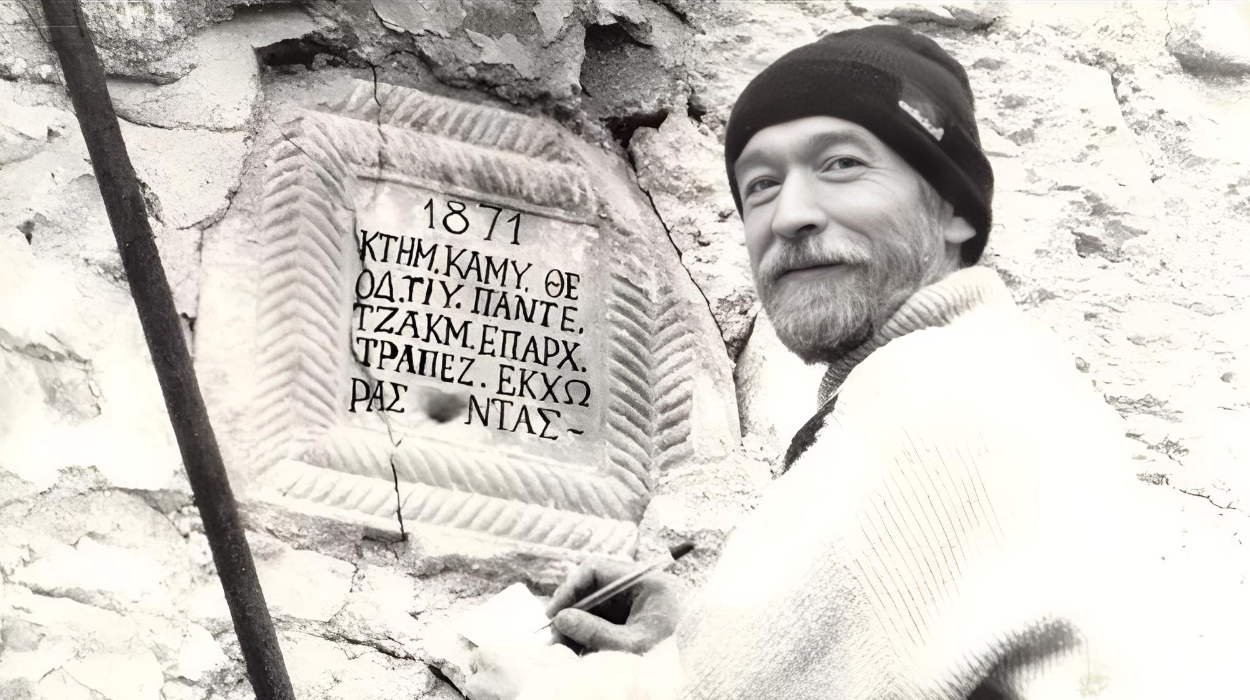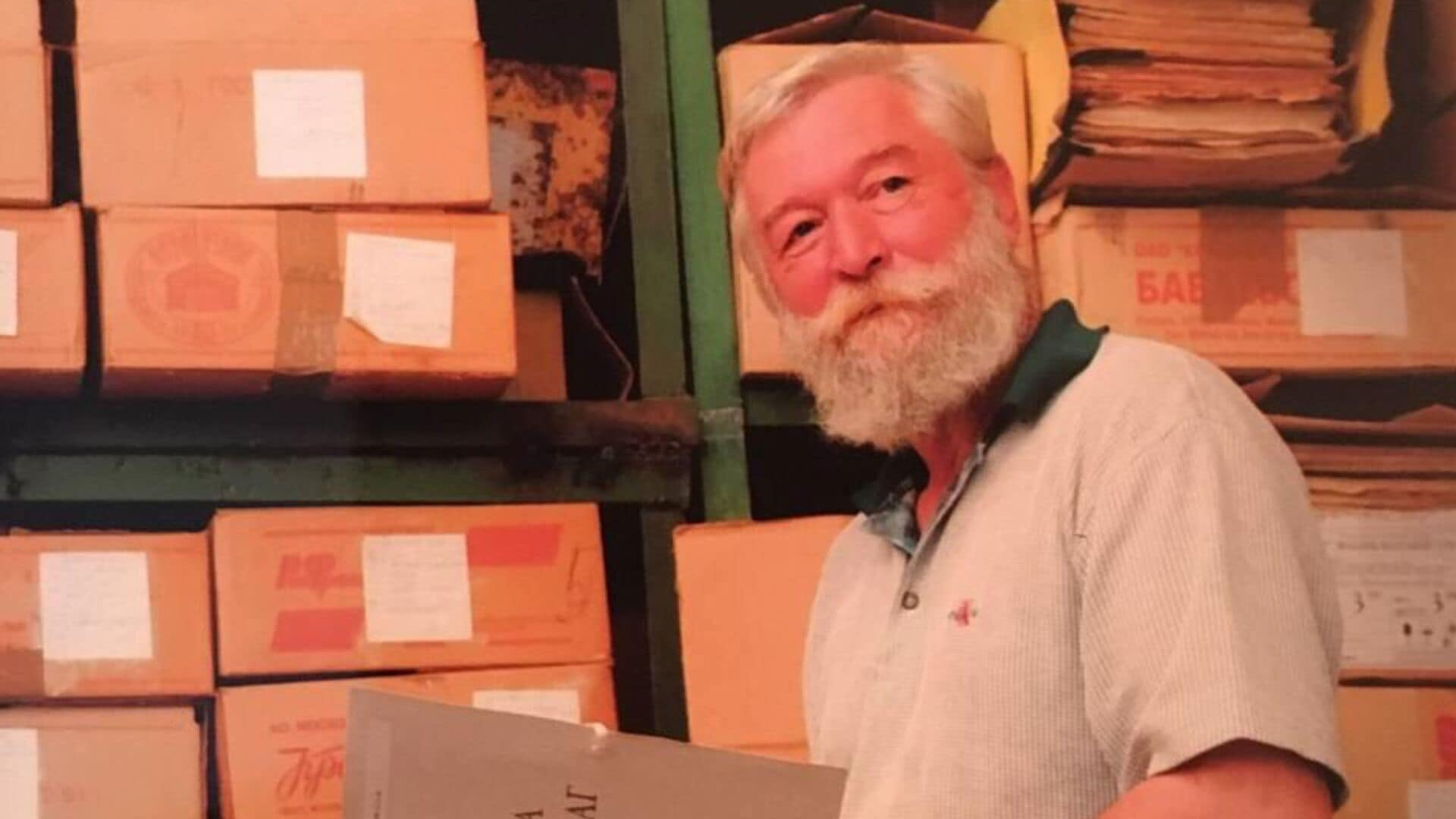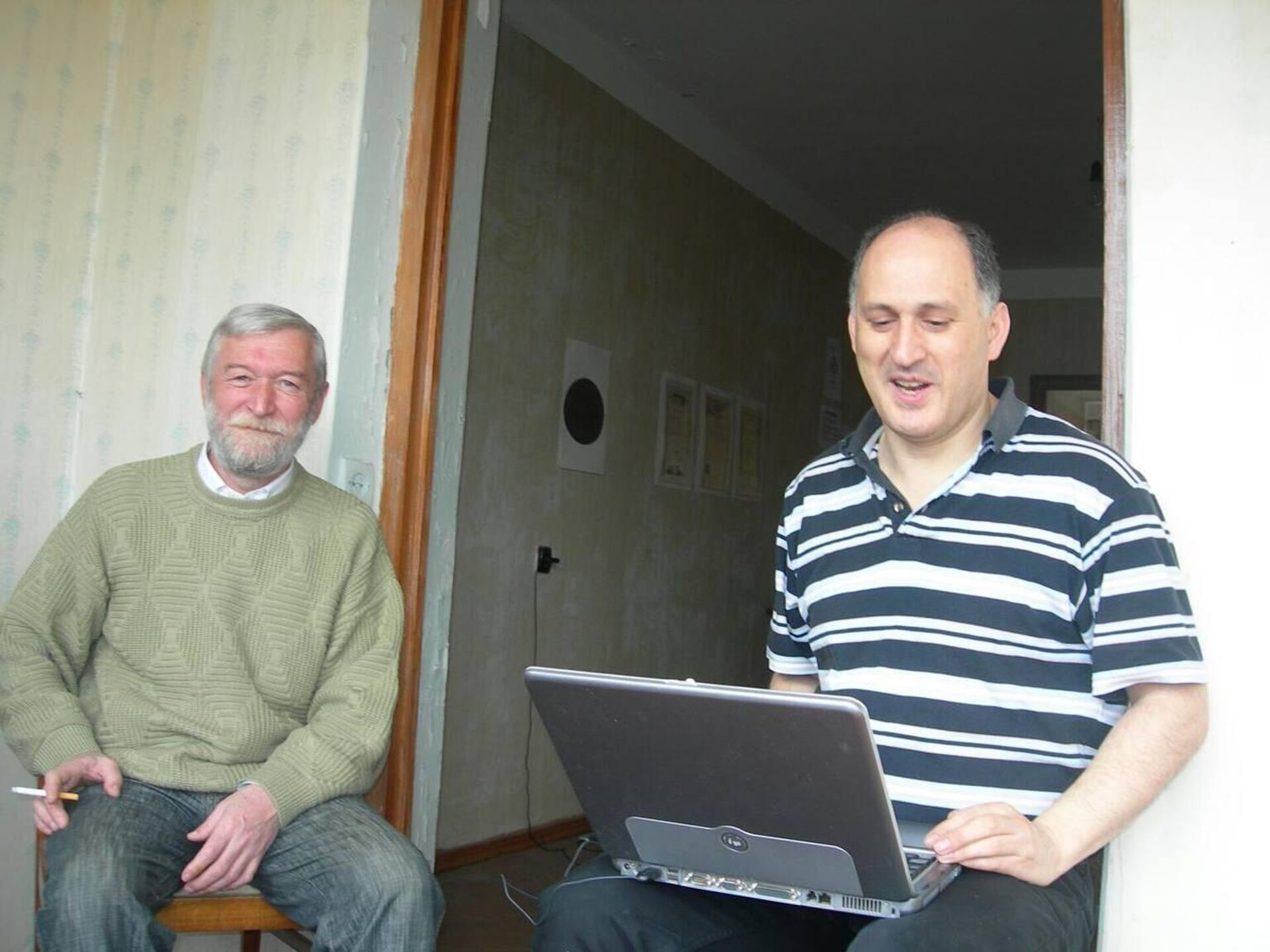The Keeper of History: In Memory of Anzor Agumaa

Anzor Agumaa (6 January 1958-9 September 2012) was an archaeologist, local historian, artist, and collector.
Anzor Agumaa, an archaeologist, local historian, artist, and collector, would have celebrated his 66th birthday on January 6, 2024. This article offers a glimpse into his life, exploring his contributions to preserving the historical and cultural heritage of Sukhum, and the relentless drive that characterised his professional and personal life.
A Dedicated Historian
Born on 6 January 1958, in Sukhum, Anzor Agumaa completed his education at the Sukhum Art School and the Historical Department of the Abkhazian State University. His career spanned roles at the Abkhazian State Museum, where he participated in several archaeological expeditions and worked as a scientific researcher at the Dmitry Gulia Abkhazian Institute of Humanitarian Studies.
On October 17, 2011, by presidential decree in Abkhazia, Agumaa was appointed head of the Department for the Protection of Historical and Cultural Heritage, a position he held from 1989 to 2009. He passed away on 9 September 2012.
Batal Kobakhia, former Deputy Minister of Culture of Abkhazia, in his memoirs about the scholar, quoted Agumaa's own words about his research activities and their significance to him:
"Even if there is just one person who takes an interest in what I write, I am ready to work for the sake of that person today."

Kobakhia highlighted Agumaa's dedication to studying the architectural monuments and history of the capital of Abkhazia. In 2017, Agumaa's book "Old Sukhum" was presented, illustrating the city's unique character through its history, architectural heritage, and the people who shaped it.
In July 2023, the foyer of the Abkhazian State Samson Chanba Dramatic Theatre hosted the presentation of Agumaa's book "Sukhum. Essays on the History and Architecture of the City at the End of the 19th and Beginning of the 20th Century." Oleg Bgazhba, the scientific editor of the publication and a doctor of historical sciences, described the book as a compendium of architecture and history, providing invaluable insights for academic research and practical applications in urban planning.
Agumaa contributed over a hundred scholarly articles to the "Abkhazian Encyclopedia" and participated in major scientific conferences. His direct involvement was crucial in organizing several international archaeological conferences and publishing their proceedings. Additionally, he authored more than 20 scientific publications on archaeology, history, archival work, and the protection of historical and cultural heritage. Along with other experts, Agumaa developed archaeological maps and established protective zones for archaeological monuments in Sukhum and New Athos.
An Irreplaceable Professional
Abkhazian film director Ibragim Chkadua, who met Agumaa soon after the end of the Patriotic War of the People of Abkhazia, described their quick bond despite the age difference.
"We met at Batal Dzhapua's 'Agava' gallery, where everyone gathered almost daily. Anzor was a deeply knowledgeable person with a profound understanding of Sukhum, and I've always been drawn to our capital's history," Chkadua recalled.
Chkadua referred to Agumaa as an irreplaceable professional, deeply affected by the wartime damages and post-war demolitions in the city, believing that such actions eroded the city's character.
"He endeavored to preserve every cultural layer of the city, documenting and describing them, and finding photographs. He had encyclopedic knowledge about Sukhum and could answer any question with precise dates, statistics, facts, and figures, along with many vivid and characteristic stories about the city," Chkadua emphasised.
Regarding their friendship, Chkadua shared that Agumaa was a reliable man with strong ethical principles and attentive to others' requests.

Anzor Agumaa (left) and Viacheslav Chirikba.
The Last Knight
Roman Gvindzhia, Head of the Abkhazian State Archive Administration, and Agumaa knew each other from their school days, starting as classmates and later becoming colleagues at the State Museum.
"In school, to be honest, he was a bit of a 'troublemaker', very agile, but at the same time, he caught on to everything quickly. He was friendly with everyone, and everyone loved him. I never heard anyone speak ill of him. He had a way of winning people over," Gvindzhia shared.
Gvindzhia, deeply shocked by Agumaa's sudden passing, considers it an irreplaceable loss. He disagrees with the notion that irreplaceable people don't exist, asserting that Agumaa, along with Givi Smyr, Demur Bzhania, and Levarsa Butba, were the last knights of Abkhazia, epitomizing high standards, self-demand, nobility, and decency. "Being friends with these men was easy and enjoyable," he added.
A Father and Grandfather
"Decent, kind, interesting," is how Anzor Agumaa's daughter, Anna Agumaa, described him. She remembered him as a restrained man who never raised his voice, yet was quite cheerful and loved humor.
Anna confessed that as a child, she was quite active and occasionally mischievous. Often, her father, her main protector, had to resolve the consequences of such antics. Despite his busy work and research schedule, Agumaa made time for his family, often taking Anna on archaeological expeditions.
"We used to go to Tamysh for excavations every summer and had a great time there. While the scientists worked during the day, we went to the sea, swam in the river, and in the evenings, we sat by the fire, listening to their stories, jokes, and songs. Dad loved to joke," Anna said.
Agumaa had a great sense of humor, as Anna recalled, even convincing his future wife, Taya Georgievna Alania, that he was fluent in English, which was far from the truth.
"Mom studied German and didn't know English. When they met, he sang songs to her in what he claimed was English. Only years later did she realize that those songs were just a mix of sounds and words. That was his way of teasing her," Anna reminisced.
While generally reserved, this trait disappeared with his grandchildren, whom he spoiled with gifts, played with, and affectionately nicknamed.
"My children believe there's no better grandfather in the world," she noted.
Anzor Agumaa also participated in the Patriotic War of the People of Abkhazia (Georgian-Abkhazian War of 1992-93), losing many comrades, including Mushni Khvartskiya and Lashu Kogonia. According to Anna, the personal losses deeply affected her father, but he kept his pain to himself and didn't show it outwardly. He seldom spoke about the war.
The post-war years were challenging. The people of Abkhazia faced an economic blockade, struggling with shortages of food, resources, and lack of electricity and water for hours, even days. During these tough times, Agumaa always stood by his relatives, neighbors, and helped them in every way possible, Anna added.
She also noted that her father never spoke ill of anyone, even if they deserved it. Material values held little importance to Agumaa; for him, relationships between people, human qualities, and the atmosphere at home were paramount.
Agumaa took everything that happened to Sukhum to heart. He deeply mourned every reconstruction or demolition of historical sites, believing such actions stripped the city of its essence.